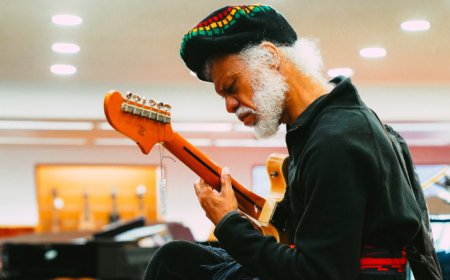Tony Martins makes history as the first African Gospel Singer to record a video clip in a New York venue linked to the expectation of Jesus' return in 1844
Pawtucket, Aug 15, 2023 (Bravanews) -- Talented African gospel singer Tony Martins has marked a historic moment by becoming the continent's first gospel artist to shoot a music video at an iconic New York City location related to the anticipation of the second coming of Jesus in 1844. The recording of this unique video clip took place in a historic location that was once associated with fervent belief in the foretold return of Christ.

Tony Martins, renowned for his powerful voice and uplifting spiritual messages, has brought his art and message to the location that once gained global prominence in the 19th century as a possible point of return for Jesus, a deeply held belief in the teachings of the Millerite movement led by William Miller.
The recording of the music video not only represents a milestone in Tony Martins' career, but also symbolizes a significant connection between the historical importance of the site and the contemporary expression of his gospel music. Martins shared his gratitude and emotion for being in the place that once carried so much spiritual importance.
"This is a moment that transcends time and distance. To be able to shoot a music video here, in this place that has such a rich history and charged with spiritual meaning, is an honor that I will never forget. My music aims to inspire hope and faith, and I hope may it resonate with the souls that once longed for the divine presence in this very place", shared Tony Martins.
The production team, along with Tony Martins, worked hard to capture the spiritual essence of the location and incorporate it into the music video. The end result promises to be an emotionally charged experience that unites Martins' gospel message with the historic and reverent atmosphere of the venue.
Although the prediction of Jesus' return in 1844 did not materialize as predicted, the legacy of this belief endures through various religious expressions and movements around the world. Tony Martins' music video, shot at this special location, serves as a tribute to that history and as an affirmation of the universal message of hope that transcends time.
As Tony Martins' music video comes to life, art and spirituality come together once again, providing a unique opportunity to reflect on the human journey in search of meaning and transcendence.
For more updates on Tony Martins' music video release and reflections on the venue's historical connection, fans and interested parties can follow his official website and social media.
“Big Disappointment”
The return of Jesus in 1844 is a belief associated with the religious movement known as Seventh-day Adventism, which originated in the United States in the 19th century. Belief regarding this event is related to the "Great Disappointment", which occurred in that same year.
The Adventist movement, led by figures such as William Miller, believed that Jesus Christ's return to earth was imminent and that it would happen at a certain point in time. Miller based his predictions on calculations relating to the biblical books of Daniel and Revelation. He believed that the Second Coming of Jesus would take place between March 21, 1843 and March 21, 1844.
When that date passed without the Second Coming occurring, many followers were disappointed, but some adjusted their beliefs and claimed that the calculation was wrong. They pointed to October 22, 1844 as the new date for Jesus' return.
However, again, that date also passed without the expected event, resulting in an event known as the "Great Disappointment". This led to a period of reflection and reassessment among Miller's followers. Some split off and formed groups with different beliefs, while others redefined their interpretations and beliefs.
Belief in the Second Coming of Jesus in 1844, as proposed by Seventh-day Adventists, did not materialize as they had hoped. However, the movement has not disappeared. Instead, it evolved into what is now known as the Seventh-day Adventist Church, which maintains several distinct beliefs and practices. The Adventist Church no longer holds to the specific date of 1844 as Jesus' return, but continues to emphasize the importance of spiritual preparation for the Second Coming.




















































